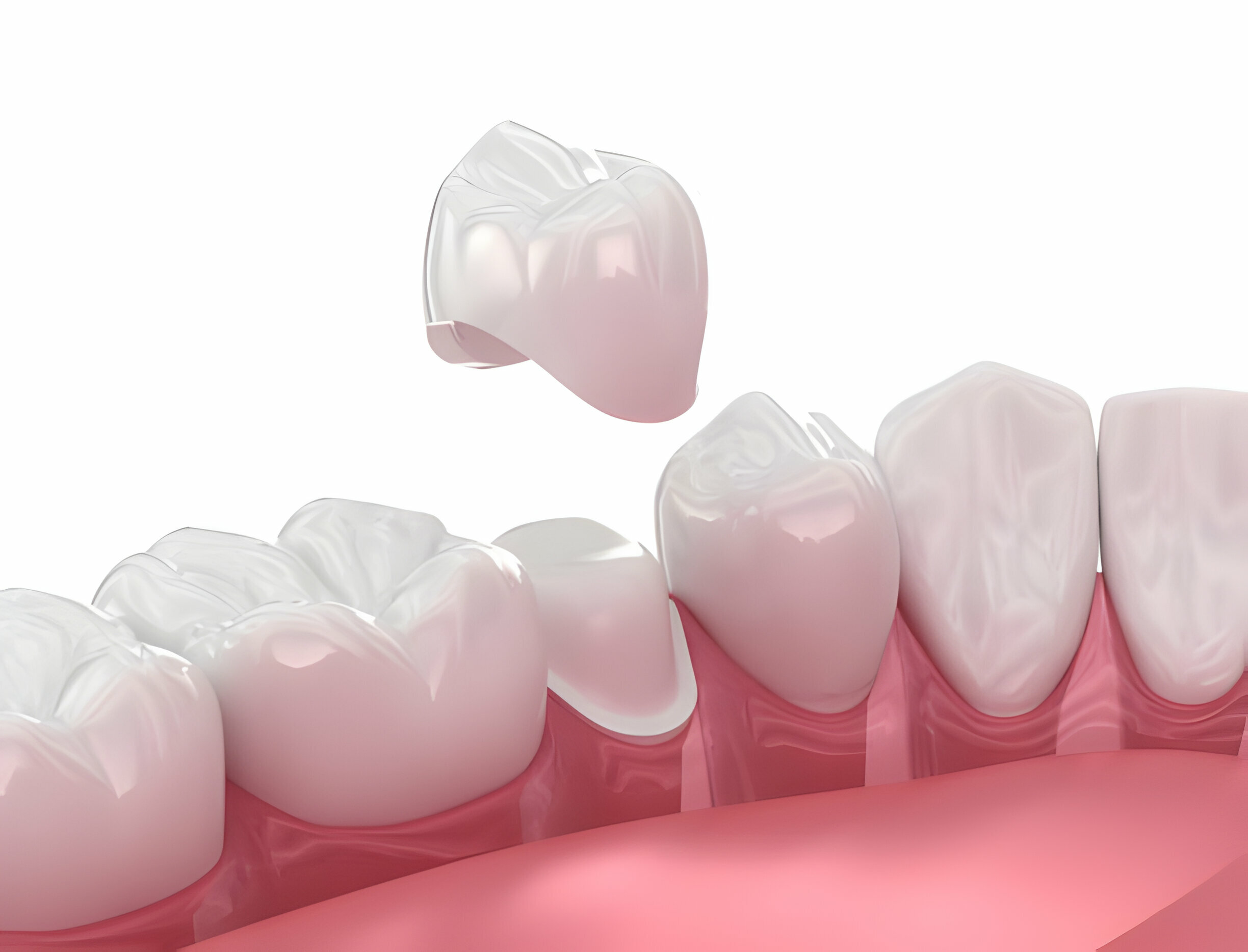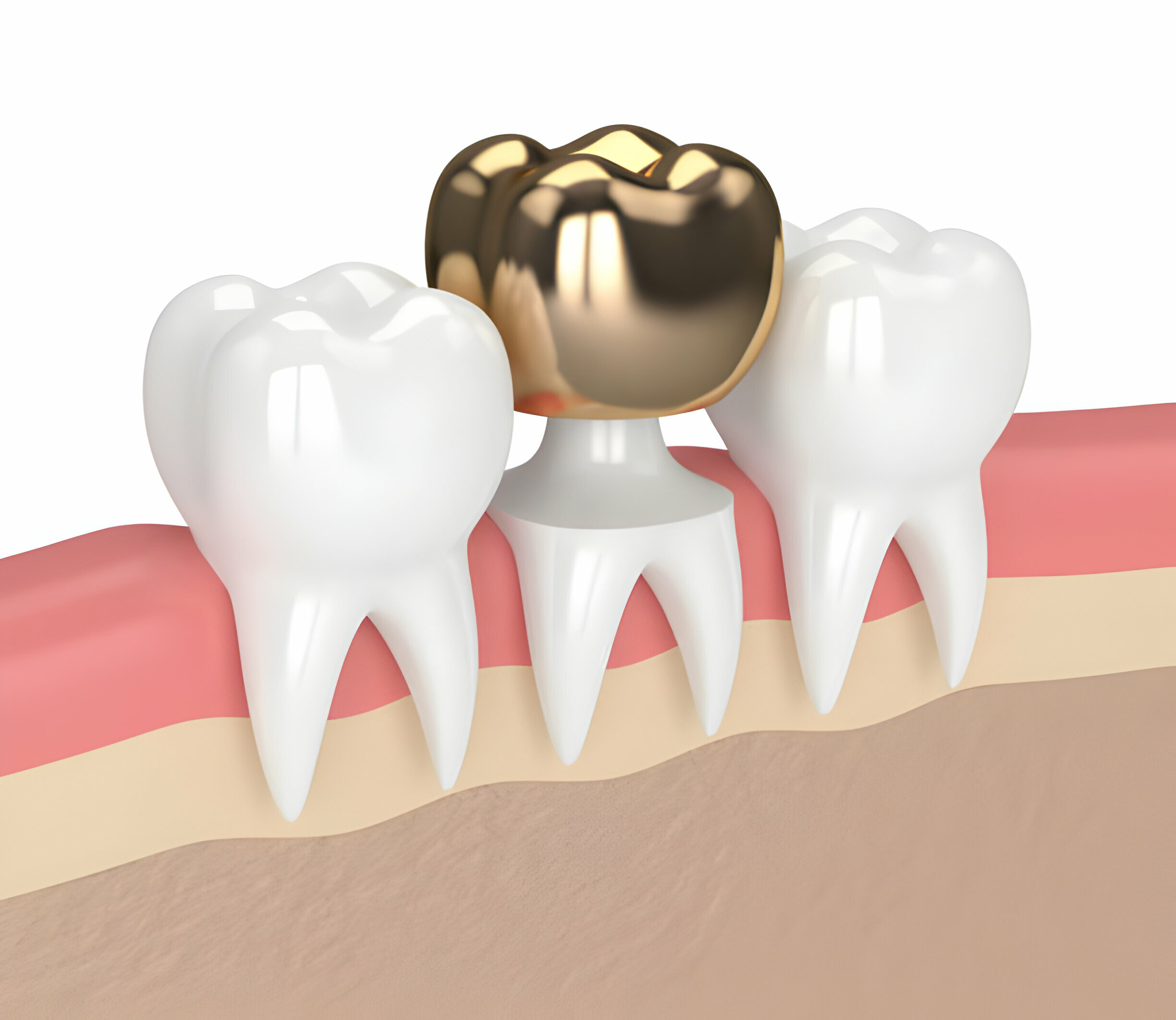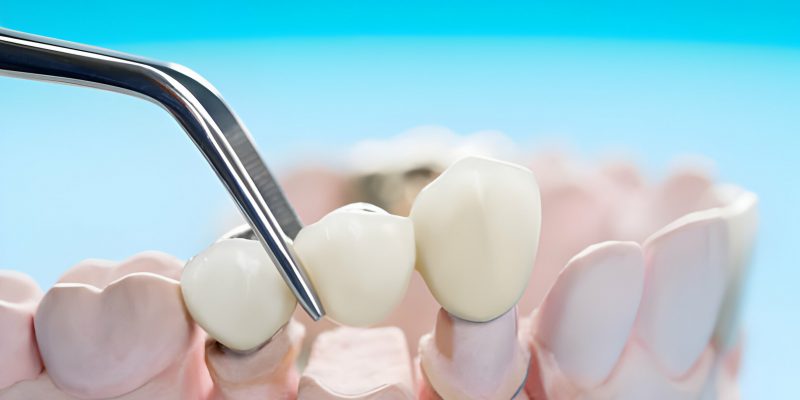Summary:
Do you also have a damaged or decayed tooth?
If yes, chances are you’ve also ignored getting the proper treatment to preserve your pearly whites.
While it may seem normal, damaged and decayed teeth can cause significant damage to your overall oral health. They are formed as a result of poor eating habits, irregular and improper hygiene, dental trauma and injury, medication, etc.
Therefore, you must address the damage effectively with dental treatments to preserve affected and nearby teeth. Among the several treatment options available, oral crowns are the best option for restoring your damaged teeth and making them functional again.

However, most people are still reluctant to get dental crowns because they have limited to no knowledge. Keeping that in mind, we shall walk you through topics like:
- Dental Crowns: A Restorative Dentistry Option
- Various Types Of Dental Crowns – Explained!
- Understanding The Procedure Of Getting Dental Crowns
Continue reading as we explore different types of dental crowns in the following sections.
Dental Crowns: A Restorative Dentistry Option
We are often educated about regular oral hygiene to prevent tooth damage and the accumulation of bacteria. Ignoring optimal oral hygiene can lead to tooth damage and other dental problems.
Tooth decay is sometimes also caused by dental injuries and certain medical conditions. Leaving damaged teeth untreated can lead to tooth loss and even affect the surrounding teeth.
Thankfully, crowns help preserve natural teeth and make them strong and functional again. Crowns in dentistry are also called tooth caps. They serve as protective covers for damaged teeth, restoring their shape, size, strength, and appearance.
These custom-fitted prosthetic appliances encase entirely the visible part of a tooth above the gum line. Dentists craft them from various materials such as porcelain, ceramic, metal alloys, or combinations to suit individual dental needs and preferences. They are commonly used to address issues like severe decay, fractures, structural weakness, or discoloration, enhancing functionality and aesthetic appeal to the smile.
Various Types Of Dental Crowns – Explained!
Dental crowns are vital to restorative dentistry, protecting and strengthening damaged or weakened teeth. With advancements in dental materials and techniques, several dental crowns are available, each with unique properties and applications. These include:
Porcelain Crowns
Porcelain crowns are prized for mimicking teeth’ natural color and transparency. Due to their excellent aesthetic qualities, porcelain crowns are popular for restoring front teeth.
Professionals of dental crowns in Farmington carefully craft them to blend seamlessly with the surrounding teeth, leaving behind a harmonious smile. While they offer exceptional aesthetics, porcelain crowns may be more prone to chipping or fracturing than other materials.
Porcelain-Fused-to-Metal (PFM) Crowns
PFM crowns are designed to combine metal’s durability with porcelain’s aesthetics. These crowns feature a metal substructure for durability, with layers of porcelain fused over it to achieve a natural tooth color.
PFM crowns are versatile and can be used for front and back teeth. They balance strength and aesthetics, making them a popular choice for many patients.

All-Metal Crowns
All-metal crowns, typically made from gold, nickel, or chromium alloys, are renowned for their strength and longevity. These crowns are exceptionally durable and can withstand the forces of chewing and biting.
The sturdy build of all-metal crowns makes them ideal for molars and other posterior teeth. While all metals may not be as aesthetically pleasing as porcelain crowns, their durability and longevity sometimes make them a preferred option.
All-Ceramic Or All-Porcelain Crowns
All ceramic or all-porcelain crowns are crafted entirely from ceramic materials, offering superior aesthetics and biocompatibility.
These crowns closely resemble natural teeth in appearance and texture, making them an excellent choice for highly visible mouth areas. All ceramic crowns are metal-free, making them suitable for patients with metal allergies or sensitivities.
Zirconia Crowns
Zirconia crowns have gained popularity recently due to their exceptional strength and durability. These crowns are made from zirconium oxide, a strong and biocompatible material that can withstand the rigors of daily use.
Zirconia crowns offer excellent aesthetics and can be customized to match the color and shape of surrounding teeth. Dentists in Farmington often recommend them for posterior teeth, where strength and durability are paramount.
Understanding The Procedure Of Getting Dental Crowns
Dental crowns, also known as caps, are integral to restorative dentistry. They cover and protect damaged or weakened teeth, restoring their functionality and aesthetics.
Understanding the process of getting dental crowns can help patients feel more informed and comfortable about this common dental procedure.
Initial Consultation and Examination
Getting dental crowns begins with an initial consultation with a dentist. During this appointment, the dentist thoroughly examines the affected tooth or teeth.
X-rays may be taken to assess the extent of damage and ensure that the tooth’s root and surrounding bone are healthy enough to support a crown. The dentist will discuss the treatment options available and address any concerns or questions the patient may have.
Tooth Preparation
Once dentists determine that a dental crown is the most suitable treatment option, they prepare the tooth for crowning. It involves removing any decayed or damaged tooth portions using specialized dental instruments.
The tooth is then shaped to create space for the crown to fit snugly over it. The amount of tooth structure removed during this process depends on the extent of damage and the type of crown used.
Impressions & Temporary Crown
After the tooth is prepped, imprints (molds) of the tooth and neighboring teeth are created. These impressions are critical for making a custom-made crown with the same size, shape, and color as the patient’s natural teeth.
Your dentist will place a temporary crown over the prepared tooth to protect it while your technicians design the permanent crown in a dental laboratory. This way, the appliance maintains its appearance and function.

Placement Of Permanent Crown
Once the permanent crown is ready, the patient returns to the dental office for placement. The dentist will remove the temporary crown and check the permanent crown’s fit, color, and alignment are checked.
They will make the necessary adjustments to ensure a precise fit and optimal aesthetics. Once the patient and dentist are satisfied with the crown’s appearance and fit, it is permanently bonded or cemented into place using dental adhesive.
Final Evaluation And Post-Procedure Care
After our dentists have placed the crown, they will conduct a final evaluation to ensure that the patient’s bite is comfortable and that the crown functions properly.
Dentist in Farmington, NM, provide instructions on caring for their new crown, including proper oral hygiene practices such as regular brushing and flossing. Our dentists may also recommend routine dental check-ups to monitor the crown’s condition and oral health.
Takeaway
- Dental crowns play a crucial role in restorative dentistry, safeguarding damaged teeth and restoring their functionality and appearance.
- Tooth damage can result from various factors, such as poor dietary habits, inadequate oral hygiene, dental injuries, and certain medical conditions.
- Various materials, including porcelain, ceramic, metal alloys, or combinations thereof, are used in crafting dental crowns tailored to individual dental requirements.
- Getting dental crowns involves several stages, including initial consultation, tooth preparation, impressions, placement of a temporary crown, fitting, and permanent crown placement.
- Don’t wait for the evident to happen! Restore your smile with our professionals at Four Corners Dentistry.

